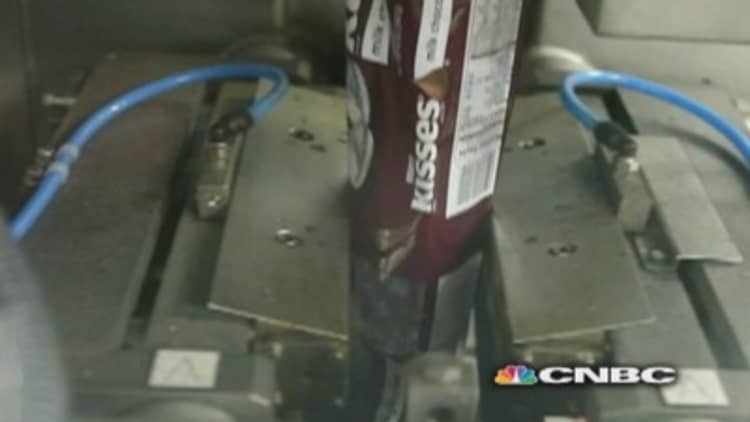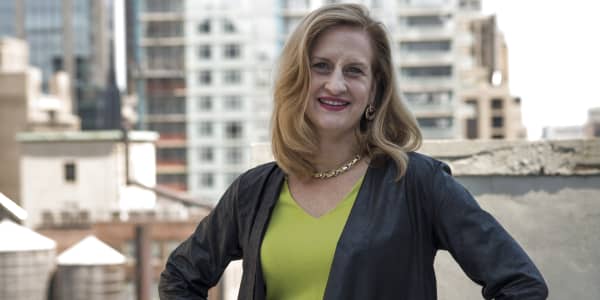
When it comes to the technology capital of the world that is Silicon Valley, the usual suspects come to mind: Apple, eBay, Google. But Hershey? It turns out that the chocolate giant's made the move into the valley, turning to techies for a glimpse into the future.
The Hershey Company, along with the home-improvement giant Lowe's and Coca-Cola, have each committed time, resources and a substantial investment to be a part of the newly launched Corporate Innovation Exchange at Singularity University. The university, co-founded by futurists Peter Diamandis and Ray Kurzweil, brings together the world's leading innovators, thought leaders and disruptors to solve some of the most challenging problems the world faces today, and big business is signing up.
Singularity University has turned to corporate America with the goal of giving companies the opportunity to innovate at a Silicon Valley outpost in order to ignite "transformational growth in large organizations by helping them apply exponential technologies" by using the school's unique global community.
Salim Ismail, the founding executive director at Singularity, says that by working with the school, companies can pick the brains of the faculty and start-ups working on campus. "We will bring together some of the leading thinkers in the world and the fastest-moving technologies, so if your team can have access to that, it vets an idea," he explained. That access allows companies to accelerate the time it takes to conceptualize and design products. But what kind of ideas could a chocolate confectionery company like Hershey be searching for in a region known for tech start-ups and app developers looking to be the next Oculus Rift?
Hershey CEO John P. Bilbrey has offered some insight into answering this question. He views the firm as a "knowledge company" that just so happens to make chocolate and candy. "If you think of it that way, it makes so much sense for Hershey to be in the Silicon Valley," said the now California-based Hershey futurist Lina Yang. Yang sees the move as one of the best ways for the company to step up its game, taking Hershey to the next level.
Her office is situated right down the hall from her Coca-Cola and Lowe's counterparts on the university's campus; the bulk of their days are spent brainstorming with the best and brightest in the valley. It's an attempt to sniff out what exactly perdisruptors in technology are doing, so that their company doesn't get disrupted.
Hershey maintains that it's on track for a 5 percent to 7 percent growth in sales this year, despite the fact that first-quarter earnings fell short of expectations. The confectionery giant's biggest competitor, Mondelez, is nipping at its heels as it continues to have success with growth in emerging markets. So it's no surprise that Hershey is taking an aggressive approach when it comes to innovation.
The company has begun testing 3-D printing for the production of its chocolate line, recently partnering with 3D Systems. The 3-D printing leader has an official partnership with Singularity University.
But Hershey is thinking outside the box, going beyond new methods of manufacturing—such as looking into the rapid growth of wearable biometric technology.
The chocolate giant is exploring what the relationship between food and body will look like in the future. Yang sees our view of food consumption radically changing, and it's prompting her to figure out how Hershey can best operate in a world where individuals will monitor everything going into their bodies.
This is the type of innovation and brainstorming that the other companies at Singularity's campus are also likely to be doing.
Read More3-D printed Hershey chocolate is coming
This new experiment of big business flirting with Silicon Valley likely means that at some point the bulk of Fortune 500 companies will soon follow suit, in order to stay ahead of disruptive changes. Yang predicts, "Every organization is going to be affected by exponential technology. It's a matter of, Do you want to play with it so you can make an opportunity of it, or do you want to be playing catch-up and reacting to it," she said.




